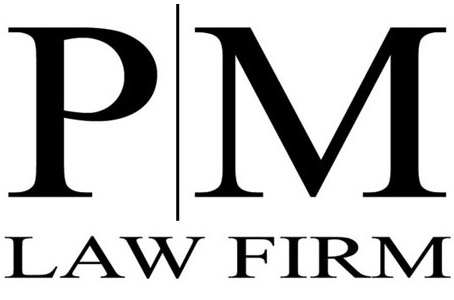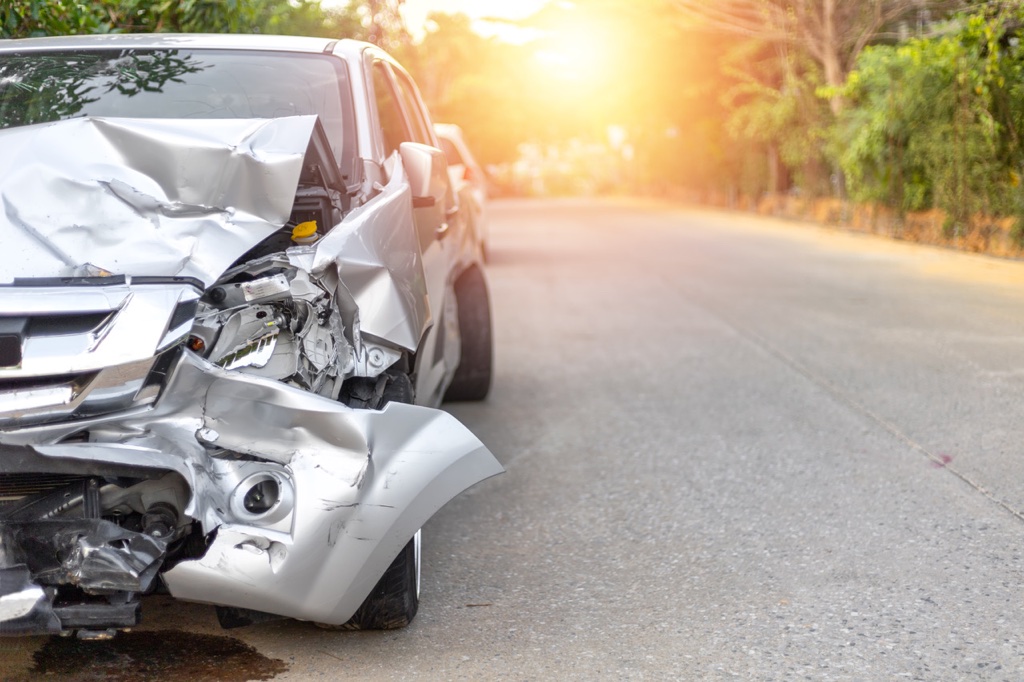Many people will be traveling during the holiday season. For some, it will be the first time they have ventured away from home in over two years because of the pandemic. It would therefore come as no surprise if this year’s holiday traffic volume sets a new record. In fact, AAA estimates that the number of travelers on the road during this year’s Thanksgiving weekend will exceed 50 million people. Unfortunately, such a large volume of traffic will most likely result in multiple accidents. With that in mind, here are some ways to avoid a car accident during the holiday season:
Thoroughly Plan Your Trip
Prior to embarking on your journey, you should take the time to thoroughly plan your trip. You need to understand the dangers that you will face and take proactive steps to avoid them. In particular, you should map out your trip so that you know exactly where you are going, be aware of hazardous conditions that you might encounter along the way and be on the lookout for reckless and distracted drivers. You should also prepare your vehicle for the trip and adopt a mindset that promotes defensive driving.
Map Out Your Route
If you will be driving through unfamiliar territory, it pays to map out your route so that you know exactly how to get to your destination. It is fine to rely on a GPS or cellphone guidance system, but such systems aren’t 100 percent reliable, and you don’t want to be caught in a traffic jam trying to figure out which way to go. Sure, go ahead and use your guidance system, but have some maps with you as a backup. Also, watch out for other drivers who may be traveling in unfamiliar territory because they may suddenly stop, turn or change lanes right in front of you with no warning.
Look Out for Hazardous Conditions
Prior to and during your travels, stay abreast of any hazardous conditions that might affect your driving, including inclement weather. According to the Federal Highway Administration, more than one million weather related traffic accidents occur each year with nearly half a million people suffering injuries. Other hazardous conditions to watch out for include road construction, traffic accidents, heavy commercial truck traffic and animals crossing the road. You should check to see if your GPS guidance system has a feature that will warn you of hazardous conditions ahead and suggest alternate routes.
Be Aware of Reckless and Distracted Drivers
On a long road trip, it is not unusual to encounter reckless drivers. You may see them traveling at a high rate of speed and weaving in and out of traffic. They may also be traveling so close to the person in front of them that they are unable to stop in time to avoid an accident. You may also notice drivers who seem to be distracted. They could be using their cellphone, looking at a map or reaching for food. The best thing to do when you encounter a reckless or distracted driver is to simply allow plenty of space between them and you until you lose sight of them.
Prepare Your Vehicle
To avoid an accident, you should make sure that your vehicle is road worthy. It is smart to begin your trip with a full tank of gas because you never know when you may be stuck in heavy traffic for several hours and unable to get to a service station. You should also check your oil, tire pressure and windshield washer fluid. Additionally, you want to make sure that you have a dependable and fully charged battery as well as sufficient brakes. It is also a good idea to carry an emergency kit that has a flashlight, blanket and first aid supplies in case you get stranded.
Prepare Yourself for the Trip
You should also make sure that you are well rested and physically fit to make the trip. Try to get a good night’s sleep, and avoid traveling if you are fatigued or not feeling well. Be sure that no medications you take will make you drowsy or cause you to lose concentration. Also avoid all alcoholic drinks. Make sure that your cellphone is fully charged, and maintain a list of emergency numbers. It might also be a good idea to let a friend or relative know of your travel plans just in case something goes wrong.
Practice Good Driving Habits
For safety purposes, nothing is more important than practicing good driving habits. Always wear your seat belt, and make sure that your seat and mirrors are adjusted properly. Obey all traffic laws, and don’t speed. Never talk on your cellphone or use it to send messages while you are driving. Do not let yourself become distracted by sights that you see along the road or by trying to retrieve an item from your glove box or center console. If you find yourself getting tired, stop and take a break.
Practice Defensive Driving
Defensive driving means to be aware of circumstances that might cause an accident and take steps to avoid them. First, you should maintain a sufficient distance between you and the person in front of you in case you have to stop suddenly without warning. Always check your mirrors and blind spots before making a lane change. Make sure you know how to use anti-lock brakes properly if you have them and how to pump your brakes if you do not. In inclement weather, drive at a reduced speed and don’t use your cruise control. Never assume that a driver is going to make a turn just because they have their turn signals on. They may change their mind and decide not to turn, or they may not even be aware that their turn signals are on.
What to Do If You Are Involved in a Car Accident
Even though you take all the precautions listed above, it is still possible for you to be involved in an accident. Do you know what to do if that happens? What you do immediately following a car accident can significantly affect your future health and wellbeing as well as your ability to file a claim for damages. With that in mind, here are seven things that you should do immediately following a car accident:
1. Call 911 if there are any injuries that require medical attention. Check the passengers in your car as well as those in other vehicles to make sure that everyone is OK. Keep in mind that an adrenaline rush following an accident can cause a person to underestimate the extent of their injuries or to not even realize that they have been injured.
2. Report your accident to the proper law enforcement agency. You may not have to do this if you have called 911 because the 911 operator will most likely do it for you. When law enforcement arrives, fully cooperate with them in filling out any reports. This is the best time to record the details of an accident while it is still fresh on your mind. Such a report will be helpful in notifying your insurance company and will be valuable to your attorney in the event that you need one.
3. Move your vehicle out of the travel lane if possible and if it is safe to do so. However, do not attempt to move it if that would cause an unsafe condition. If you are unsure about whether to move your vehicle, wait until law enforcement arrives, and they will help you decide what to do.
4. Exchange information with the other parties involved in the accident. Again, you may not have to do that if a law enforcement officer makes a written report and gives you a copy. In any event, you want to make sure that you get the name, address, license number and insurance information from all other parties involved.
5. Notify your insurance company as soon as possible after the accident. This will make it easier for you to file a claim at a later time and for you to confirm what your insurance covers following an accident, such as a rental car. Your insurance company may also help you to secure the services of a tow truck.
6. Gather as much evidence as possible before leaving the scene of the accident. Take several photos and videos at multiple angles. Make notes that describe exactly what happened prior to, during and after the accident. Record who was driving and what the weather conditions were like. Also gather names and contact information from anyone who may have witnessed the accident.
7. Keep records of any expenses that you incur as a result of the accident, including car repairs and the cost to rent a vehicle. Also keep records of any medical treatment that you receive, including doctor visits, hospital stays, prescription drugs and physical therapy.
Things Not to Do Immediately Following a Car Accident
Just like there are certain things that you should do following a car accident, there are certain things that you should not do. Here are three of them:
1. Do not leave the scene of an accident. Not only would that be a mistake on your part, but it would also be a crime under Texas law. You might also lose the chance to file a claim with your insurance company or to file a personal injury lawsuit if someone in your party is injured.
2. Do not ignore or underestimate injuries. As previously mentioned, an adrenaline rush can cause a person not to realize how seriously they have been injured. If there is any doubt about the seriousness of an injury, seek immediate medical attention.
3. Do not give out too much information. Although exchanging contact information is helpful, do not volunteer any statements about what caused the accident, and do not admit fault or liability until you have talked to an attorney. Also, do not speak with the other party’s insurance company.
Consult an Attorney If You Are the Victim of a Car Accident
If you are the victim of a car accident, contact PM Law Firm today. You may be in pain, plus you may not be able to work because of your injuries. On top of that, medical bills are probably piling up. We can help you file a claim with your insurance company. You may also be entitled to receive compensation for your injuries by filing a personal injury lawsuit. Do not wait to contact us, though, because Texas law has a two-year statute of limitation for property claims and for wrongful death cases. Also, we need adequate time to prepare your case and to file your claims for you.

